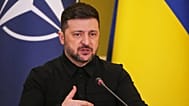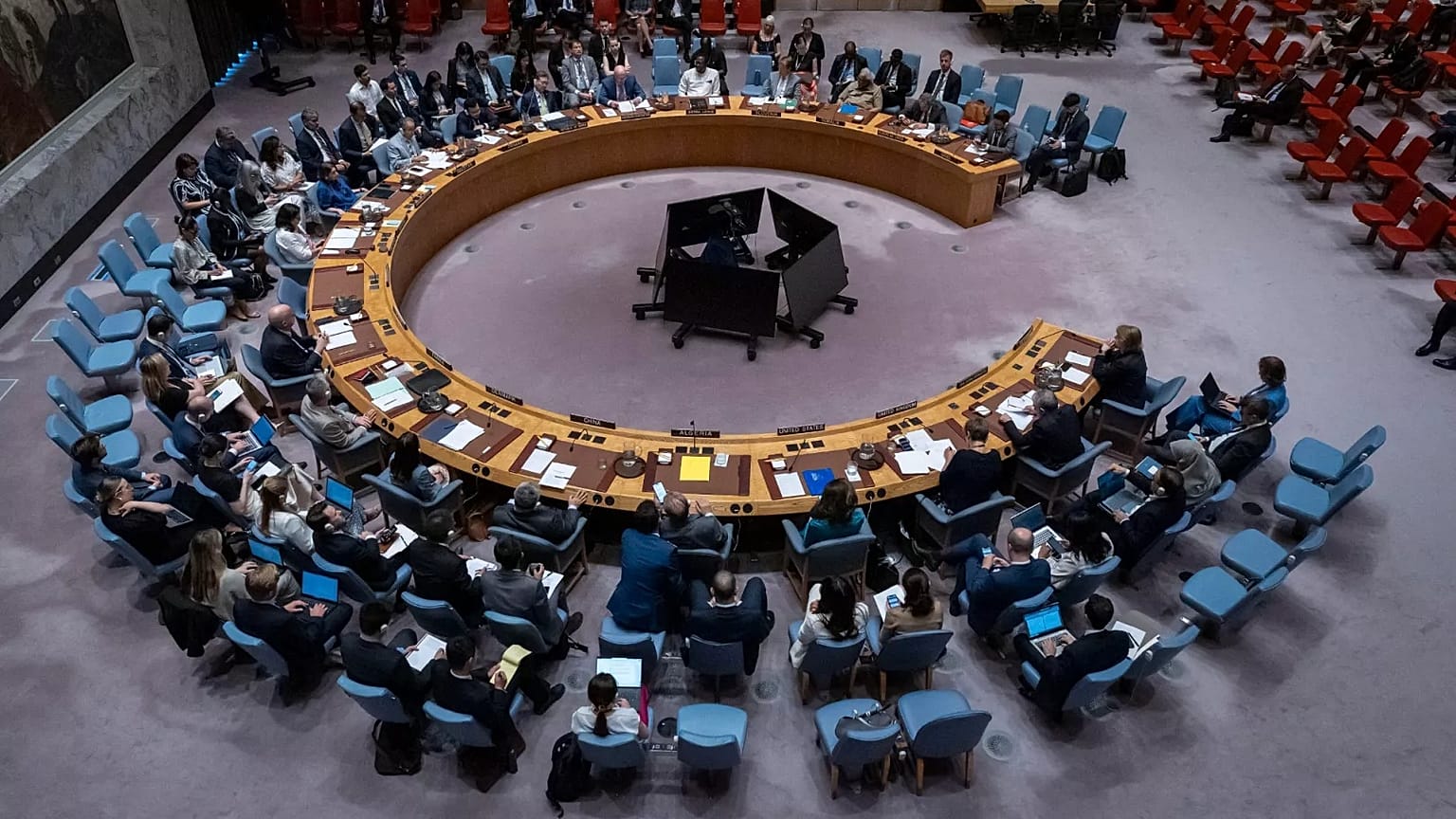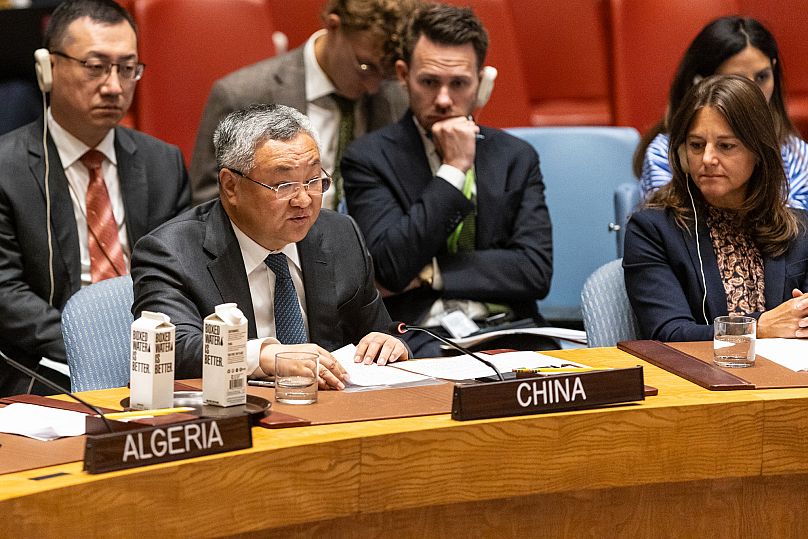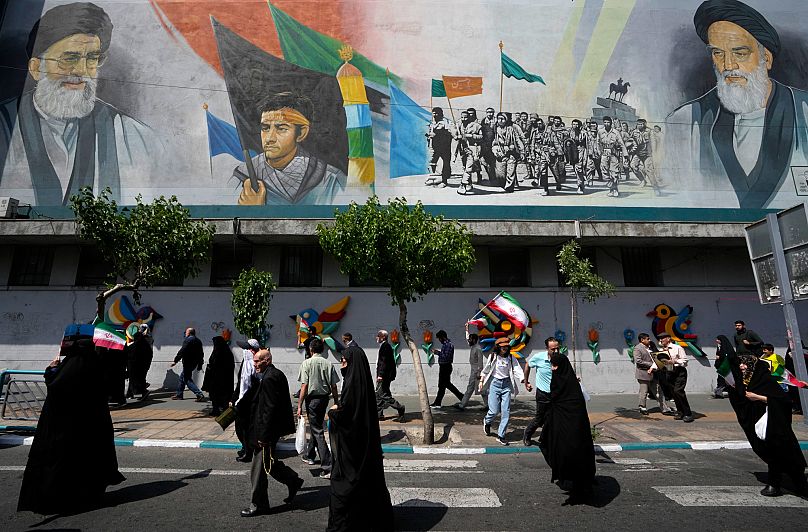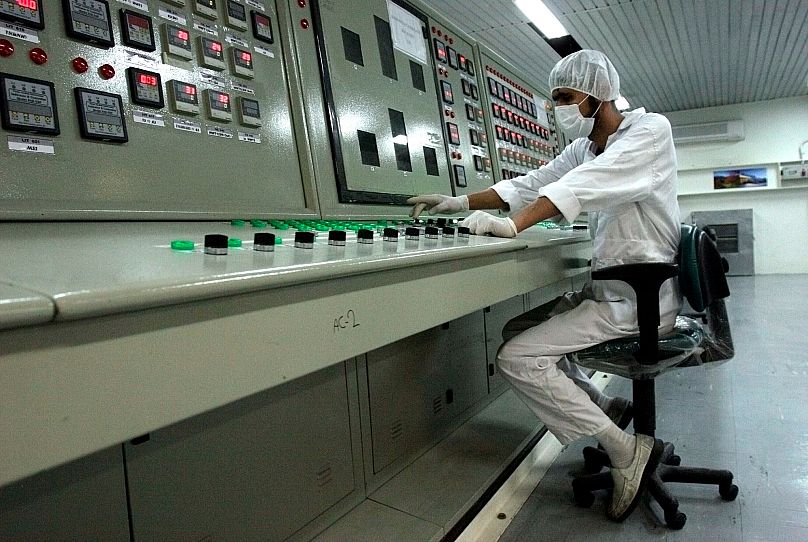The resolution was put forward by South Korea but did not garner the support of the nine countries required to halt the series of penalties from taking effect at the end of the month.
A resolution aimed at stopping the reimposition of UN sanctions on Iran over its nuclear programme failed in the Security Council on Friday after weeks of last-ditch diplomatic talks appeared to break down days before the annual gathering of world leaders in the General Assembly.
The resolution was put forward by South Korea, the current president of the 15-member council, but did not garner the support of the nine countries required to halt the series of snapback sanctions from taking effect at the end of the month.
Only four countries — China, Russia, Pakistan and Algeria — supported the effort, with some using the meeting to blast European leaders for what they called an unjustified and illegal action against Iran.
"Their only goal now is to use the council as a tool for their bad faith play, as a lever to exert pressure on the state in favour of a state which is trying to defend its sovereign interests," Russia's ambassador to the UN Vassily Alekseevich Nebenzia said.
China's envoy Fu Cong echoed that sentiment, saying that the council's action on this issue has managed to bring a "definitive" end to eight years of diplomacy with "one stroke."
Iranian ambassador Amir-Saeid Iravani thanked his four colleagues for voting in favour of lifting the sanctions and rejecting "the blunt instrument of pressure and intimidation."
"They have chosen to stand on the right side of history," he said.
France, Germany and the United Kingdom moved last month to trigger the "snapback mechanism" which automatically reimposes all UN sanctions that were in effect before the landmark 2015 nuclear deal.
Those penalties included a conventional arms embargo, restrictions on ballistic missile development, asset freezes, travel bans and a ban on producing nuclear-related technology.
The process is designed to be veto-proof unless the UN's most powerful body agrees to stop it. But the UK indicated on Friday that the failed vote does not close the door for future efforts to halt the sanctions.
"The United Kingdom remains committed to a diplomatic solution," Barbara Woodward, the British ambassador to the UN, said during her remarks.
"We are ready for further engagements diplomatically in the next week and beyond to seek to resolve differences."
Intensified diplomacy
Over the last several weeks, intensified diplomacy between Iran and the European countries has taken place, but without a resolution so far, there were indications that sanctions were likely.
German and European Union leaders had warned Iran in a call on Wednesday that it had yet to take the necessary action to stop the reimposition of sanctions against the Islamic Republic, which is already reeling from a 12-day conflict with Israel and a decades-long financial crisis.
"The window for finding a diplomatic solution on Iran’s nuclear issue is closing really fast," the EU's top diplomat, Kaja Kallas, said in a statement.
"Iran must show credible steps towards addressing the demands of France, UK and Germany, and this means demonstrating full cooperation with the International Atomic Energy Agency and allowing inspections of all nuclear sites without delay."
In a statement issued hours later, Iranian Foreign Minister Abbas Araghchi again asserted that the reimposition of UN sanctions was "lacking any legal or logical justification."
He also pointed to the fact that Iran and the UN nuclear watchdog had already reached a deal mediated by Egypt to grant the IAEA access to all Iranian nuclear sites and for Tehran to report on the whereabouts of all its nuclear material.
A 12-day conflict Israel launched against Iran in June saw both the Israelis and the Americans bomb Iranian nuclear sites, throwing the status of Tehran’s stockpile of uranium enriched nearly to weapons-grade levels into question.
The landmark 2015 nuclear deal with Iran, known as the Joint Comprehensive Plan of Action (JCPOA), saw Tehran receive sanctions relief in return for limits on its nuclear activities.
That agreement all but collapsed after President Donald Trump withdrew the United States from it in 2018, slamming it as "the worst deal ever negotiated" and reimposing what he called a "maximum pressure" campaign of sanctions on Iran.


